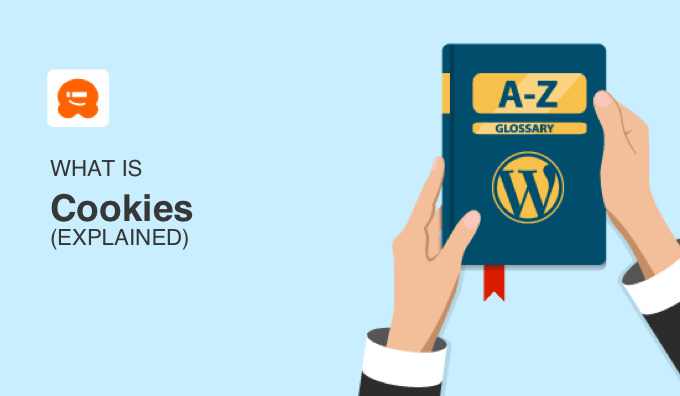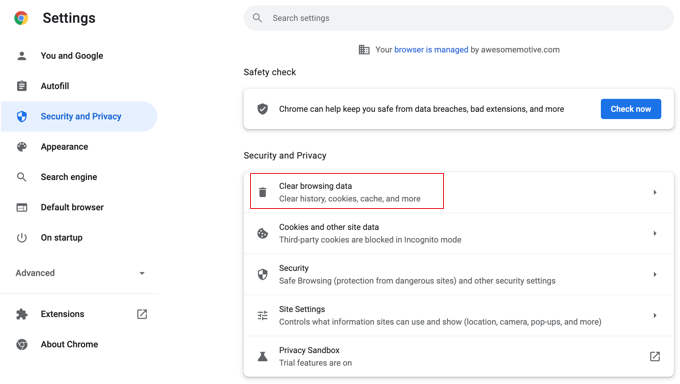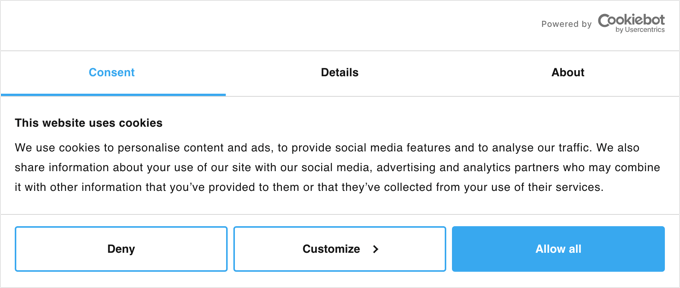Cookies are small text files that temporarily save website-related data on a user’s computer. They are widely used on the web for storing information and providing a personalized browsing experience to users.
Most WordPress websites set cookies, such as when a user logs in or leaves a comment. Third-party plugins may also use cookies.
While cookies are extremely useful, they can also be invasive. That’s why some countries have laws that require website owners to disclose which cookies they use and what information they track and store.

What Are Cookies?
Cookies are plain text files that are created and stored in a user’s browser when they visit a website. The website stores temporary information in cookies that can be used to offer a more personalized user experience.
Cookies are used to add different features to a website, such as:
- Remembering a user’s login credentials
- Remembering information like the items a user saw on a website, the items they added to cart, and the name or email address they used on the website
- Tracking users across a network of websites
- Learning about a user’s browsing behaviors to serve targeted ads
Most reputable websites usually have a privacy policy and terms of service pages where they mention how they use cookies on their websites.
Any user can delete cookies from their web browser by going to the privacy section on their browser’s settings.

How Does WordPress Use Cookies?
By default, your WordPress website generates two types of cookies:
- Session cookies are set when a user logs in to a WordPress site. They store the user’s authentication details and admin area settings and expire after 15 days when the user will have to log in again.
- Comments cookies are set when a user leaves a comment on your WordPress blog. They store the user’s name, email address, and website URL so that they don’t have to re-enter it the next time they leave a comment. They expire after about 347 days.
Apart from these, WordPress plugins can also set their own cookies to store different information or recognize repeat visitors.
You can discover which cookies your site leaves by following our guide on how to know if your WordPress website uses cookies.
How Do WordPress Plugins Use Cookies?
WordPress plugins may use the information stored in the default cookies to provide personalization features. Plugins may also store their own cookies.
For example, OptinMonster uses cookies to show personalized optin forms based on the user’s past behavior. Another plugin uses cookies so users can add favorite posts for the WordPress site.
Some WordPress plugins make it easy to turn off cookies. This lets you keep your website compliant with countries that have cookie laws. Here are some plugins that let you easily turn off cookies without breaking the plugin’s functionality:
- MonsterInsights, the best Google Analytics plugin on the market
- WPForms, the best WordPress contact form plugin
- OptinMonster, the best lead generation software for WordPress
- Smash Balloon, the best social media plugin for WordPress websites
We cover how to turn off cookies for these plugins in our guide on how to know if your WordPress website uses cookies.
If you’d like to learn how to make better use of cookies on your website, then see our guide on how to set, get, and delete WordPress cookies (like a Pro).
Cookies and Privacy
Cookies are a powerful tool that can be used to track a lot of information about users, and this information can be shared with third-party advertising platforms.
Considering the privacy risks, many countries and regions have laws that set compliance guidelines for website owners.
For instance, the European Union has the GDPR Law and ePrivacy Directive. Canada, the UK, Japan, and other countries also have laws that require website owners to get user consent and disclose the information they collect, store, and track about users.
That’s why you see cookie popups on many different websites. These banners allow website owners to comply with GDPR, cookie laws, and other privacy laws in different countries.

It is the responsibility of a website owner to comply with cookie laws in different regions. Here are some basic steps to make your website more compliant:
- You should add a privacy policy page to your site. This is legally required to comply with privacy and cookie laws in different regions.
- You should add a cookies notification plugin that asks users for consent to use cookies. Cookie Notice and CookieBot are popular, and for more options, see our list of the best WordPress GDPR plugins.
- You should check your website cookies and make sure you can find which plugins are leaving them. When choosing new WordPress plugins, check that they have options to make them GDPR and cookie law compliant.
We hope this article helped you learn more about cookies in WordPress. You may also want to see our Additional Reading list below for related articles on useful WordPress tips, tricks, and ideas.
If you liked this guide, then please consider subscribing to our YouTube Channel for WordPress video tutorials. You can also find us on Twitter and Facebook.
Additional Reading
- How to Know if Your WordPress Website Uses Cookies
- How to Add a Privacy Policy in WordPress
- How to Set, Get, and Delete WordPress Cookies (Like a Pro)
- How to Allow Users to Add Favorite Posts in WordPress
- The Ultimate Guide to WordPress and GDPR Compliance
- How to Add a Cookies Popup in WordPress for GDPR/CCPA
- 9 Best WordPress GDPR Plugins to Improve Compliance




